TIMELINE: From coup to ECOWAS intervention… how has Niger Republic crisis unfolded?
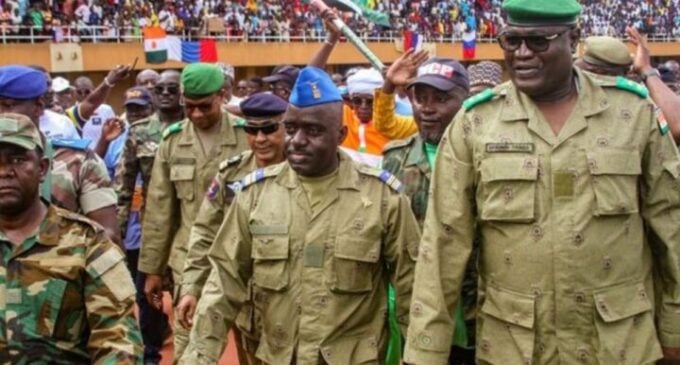
Barely six months ago, Antony Blinken, the United States secretary of state, visited the Niger Republic and called it a “model of democracy” in the West African region. Now, those words are questionable. Global news outlets have turned their attention to the landlocked West African nation and social media has been buzzing with concerns and fears about what could be.
Here is a timeline of major events that have unfolded in the three weeks since the democratically elected President Mohamed Bazoum was ousted.
JULY 26: NIGER’S PRESIDENTIAL PALACE WAS SEALED OFF
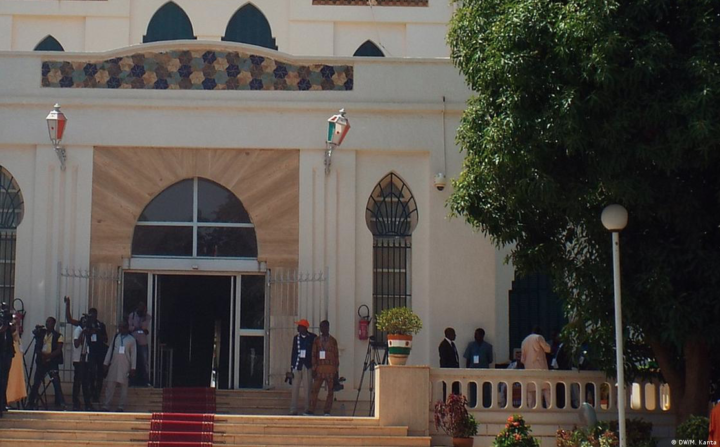
Niger presidential palace…Photo: DW.com
On a Wednesday morning, the country’s presidential guard, the section of the military meant to protect Bazoum, surrounded the presidential palace. If it were a typical day in Niger, the move would be seen as a protective stance to shield the president away from an impending disaster. It was the opposite. The soldiers detained Bazoum and denied him access to his office and residence. Ministries next to the palace were also blocked off, and staff inside the palace were refused entry into their offices.
At that time, the reason for the move was still unclear, but the development came amid reports that a coup was underway. There were also reports that discussions were underway between the mutineers and the president. The hostility was said to be the second threat to Bazoum’s presidency. He had survived a thwarted coup attempt in March 2021, days before he was due to be sworn in as president.
- AU, ECOWAS, CONDEMNED COUP ATTEMPT
The same day, Moussa Mahamat, the African Union (AU) chairperson, expressed “strong” displeasure with the development in the Western African country. Reacting to the development in the neighbouring country, President Bola Tinubu, also chairperson of the Economic Community of West African States (ECOWAS), strongly condemned the unfolding mutiny. Tinubu said the leadership of the ECOWAS region will not tolerate any situation that incapacitates the democratically-elected government of Niger. - NIGER SOLDIERS ANNOUNCED COUP, WARNED AGAINST FOREIGN INTERVENTION
In a late-night address later in the day, Niger’s military confirmed suspicions that Bazoum has being toppled. Amadou Abdramane, a colonel-major and spokesperson of the group, said the military had “decided to put an end to the regime you know”. He added that they had dissolved the constitution, suspended all institutions and closed the country’s borders. Abdramane also warned that foreign interventions would not be welcome.
JULY 27: COUNTRIES BEGAN TO CALL IN SUPPORT OF DEMOCRACY
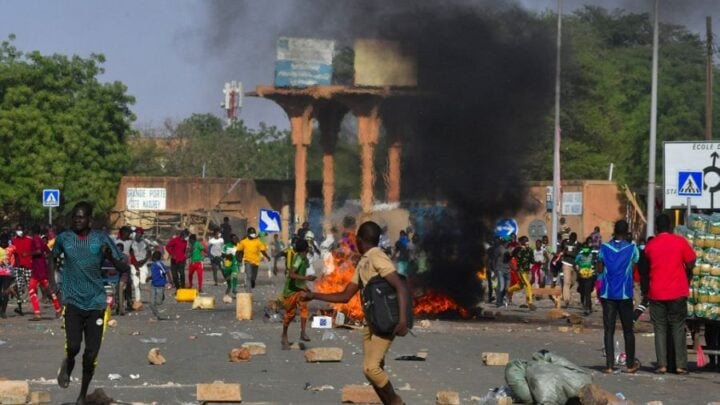
Protest in Niger
Shortly after the mutiny unfolded in Niger, the United States, France and the United Nations (UN) strongly condemned the military takeover of the country. The US, through its state department, called for Bazoum’s immediate release, adding that it was monitoring the situation closely. France, Niger’s former colonial master, said it “strongly condemns any attempt to seize power by force” and joins the calls of regional bodies “to restore the integrity of Niger’s democratic institutions”. Antonio Guterres, UN secretary-general, also said he had spoken to the embattled president and offered the UN’s full support.
- PROTESTS BEGIN
Shortly after the Nigerien soldiers announced that they had taken over, clashes between coup supporters and protesters broke out in Niamey, Niger’s capital. Plumes of black smoke billowed from the ruling party’s headquarters after hundreds of coup supporters set the building on fire.
JULY 28: NEW HEAD OF STATE ANNOUNCED
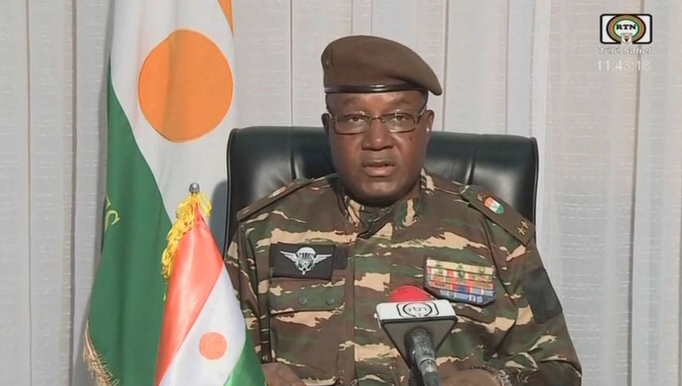
General Abdourahmane Tchiani
In a televised address 48 hours after the coup, Abdourahamane Tiani, a general, declared himself Niger’s new head of state.
Tiani was the head of the presidential guard that held Bazoum hostage in the presidential palace on account of “bad governance and worsening security”. The general appeared on state television with a banner on the screen describing himself as the president of the National Council for Safeguarding the Homeland (CNSP), a newly formed military council.
There was no mention of a timeline for return to civilian leadership.
JULY 30: ECOWAS GAVE NIGER JUNTA ONE WEEK DEADLINE TO REINSTATE BAZOUM, THREATENED FORCE
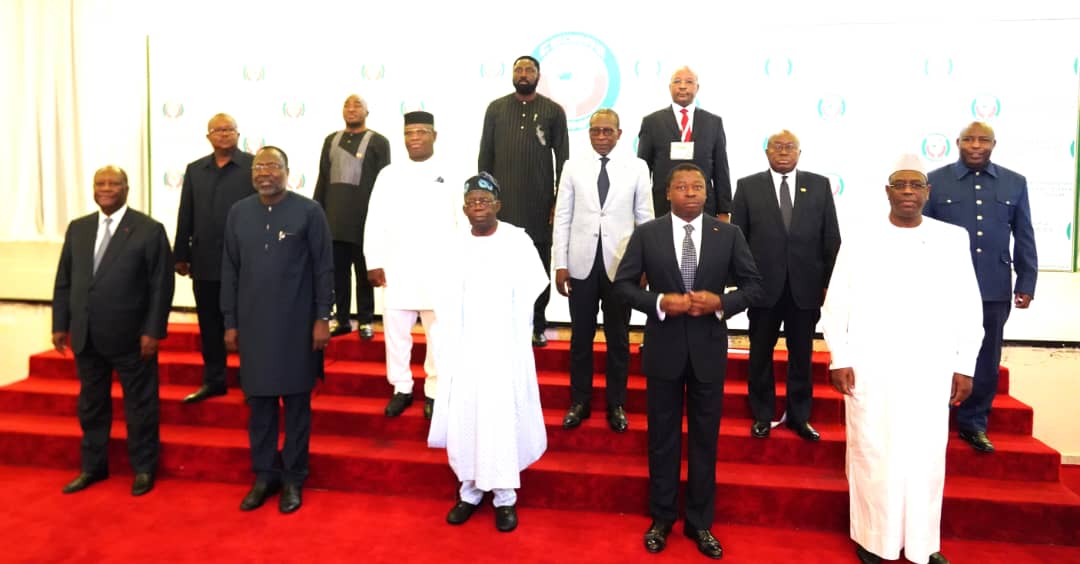
ECOWAS contingent
Following an extraordinary session of the ECOWAS member states presided over by Tinubu in Abuja, a resolution was reached to impose several sanctions on Niger over the military coup. The authority affirmed its recognition of Bazoum as the legitimate president of Niger and only his official acts or that of his duly mandated officials will be recognised. The authority also condemned the detention of Bazoum, calling for his immediate release and reinstatement.
ECOWAS said in the event that the demand is not met within one week, all measures necessary to restore constitutional order in the Republic of Niger, including the use of force, will be taken. Omar Touray, president of the ECOWAS commission, said in the meantime, the bloc had resolved to close all land and air borders between member countries and Niger, institute an ECOWAS ‘no fly zone’ on all commercial flights to and from Niger, the suspension of all commercial and financial transactions between ECOWAS member states and Niger, the freezing of all service transactions including energy transactions and deals with all financial institutions, and a travel ban and an asset freeze for the military officials involved in the coup.
JULY 31: BURKINA FASO, MALI JOINED FORCES WITH NIGER
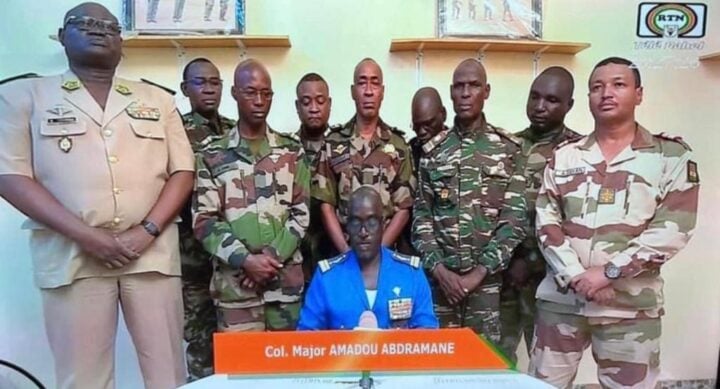
The Niger Republic junta
In a show of solidarity, Mali, Burkina Faso, and Guinea, three West African nations also under military rule, backed the coup leaders in Niger — a move that posed a threat to regional stability. The countries warned ECOWAS against any further interventions that would “jeopardise the spirit of Pan-Africanism” and threatened a withdrawal from the regional bloc. The countries also said any military intervention against Niger would force them to also adopt “self-defence measures” in support of the “brotherly” armed forces and the people of Niger.
AUGUST 1: NIGER EXCLUDED ECOWAS MEMBERS FROM BORDER REOPENING
The Niger Republic’s new military government reopened the country’s land borders and airspace — one week after the ouster of Bazoum. The military junta said the borders were opened to Mali, Burkina Faso, Algeria, Libya, and Chad and all countries outside the ECOWAS membership. Although Mali and Burkina Faso are West African countries, they had long been suspended from ECOWAS after earlier military coups.
The junta also appointed new governors for the country’s eight regions as part of the formation of a new administration.
AUGUST 2: RUSSIA ADVISED AGAINST ECOWAS MILITARY INTERVENTION – DESPITE WAGNER APPROVAL
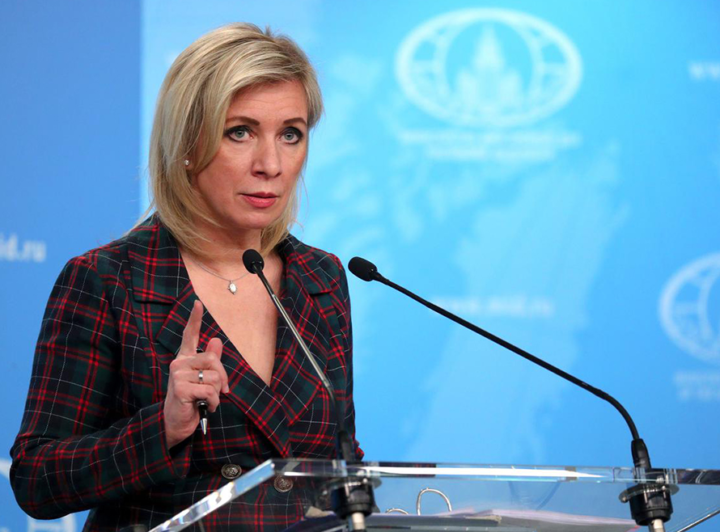
Zakharova…Photo: vecernji.hr
Addressing the unfolding situation, the Russian Federation advised ECOWAS against using force in solving the Niger crisis. Maria Zakharova, the spokesperson of the Russian foreign ministry, said the threat of military intervention in Niger will not contribute to a settlement, adding that dialogue is the best option in addressing the crisis. Although Russia condemned the coup in Niger, the Wagner Group, a private mercenary group in the European country, hailed the military takeover.
- ABDULSALAMI-LED ECOWAS DELEGATION ARRIVED NIGER
An ECOWAS delegation led by Abdulsalami Abubakar, former military head of state, arrived in Niamey to negotiate with the country’s military junta. Abdulsalami was accompanied by Muhammadu Abubakar, the Sultan of Sokoto, and Touray. They were not successful. - NIGERIA CUT OFF ELECTRICITY TO NIGER
As part of its sanctions to freeze all energy services to Niger, Nigeria cut off the electricity supply to the neighbouring country, leading to blackouts in major cities. Nigelec, Niger’s electricity company, disclosed the development to the BBC after power shortages hit the warring country. Despite the sanction, the military junta remained defiant.
AUGUST 3: FOREIGN COUNTRIES BEGAN TO EVACUATE CITIZENS
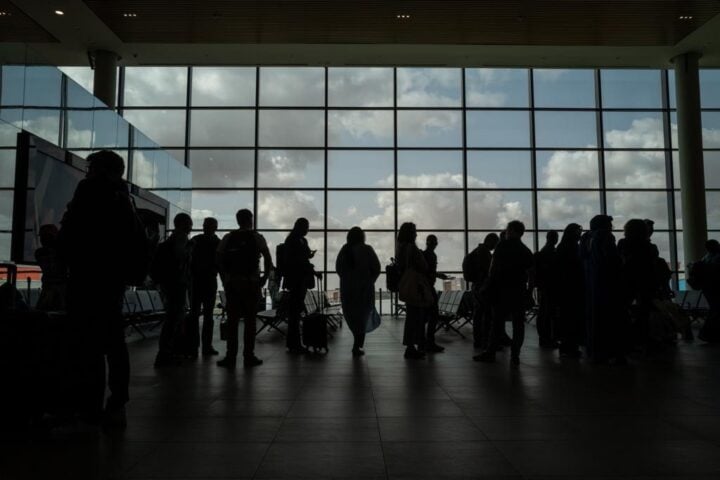
Foreigners depart Niger airport
The United Kingdom said it would temporarily reduce the number of staff in its embassy in Niamey due to the current political situation in the country, adding that it was necessary to protect its citizens from protests that could be “violent”. The United States also ordered the evacuation of some staff and families from its embassy in the country but noted that its mission will remain open while senior leadership will continue working from there.
France, Italy and Spain also announced plans to evacuate their citizens from the troubled West African country while Germany urged its citizens to board the evacuation planes offered by the French authorities.
AUGUST 4: US PAUSED CERTAIN AIDS TO NIGER
In a statement, Blinken said the government is “pausing certain foreign assistance programmes benefiting the government of Niger”.
- NIGER WITHDREW AMBASSADORS FROM NIGERIA, FRANCE
As part of actions against countries condemning the coup, Niger’s new military administration announced that it had terminated the duties of its ambassadors in four countries — Nigeria, France, the United States and Togo. - TINUBU WROTE SENATE FOR BACKING ON MILITARY INTERVENTION: As the ECOWAS deadline neared, Tinubu wrote to the national assembly about the military intervention in Niger Republic. The ECOWAS chairperson said the move to send “military build-up and deployment of personnel for military intervention to enforce compliance of the military junta in Niger should they remain recalcitrant” was part of the bloc’s resolve at the last extraordinary meeting.
- ECOWAS DEFENCE CHIEFS BACKED DIALOGUE: Weighing in on the situation, the ECOWAS committee of chiefs of defence staff said interventions in the Niger Republic must encompass political, security and diplomatic dimensions.
AUGUST 5: ECOWAS ASKED FOR INTERNATIONAL SUPPORT
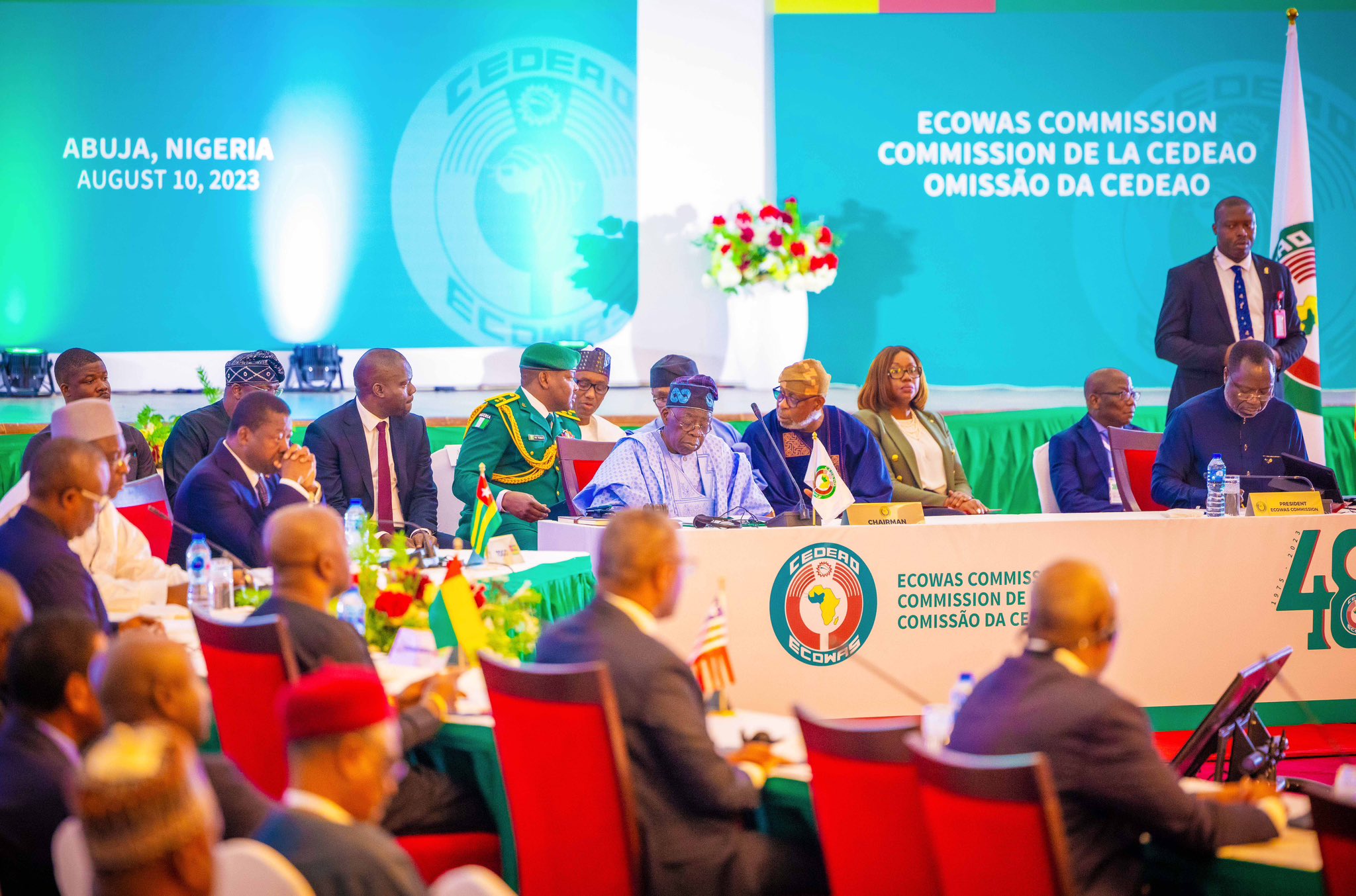
ECOWAS commission
Speaking on the issue, Nigeria’s foreign affairs ministry asked the international community to “continue to show solidarity to ECOWAS in affirming the superiority of democratic and constitutional rule over dictatorship”.
AUGUST 6: NIGERIEN CITIZENS RALLIED SUPPORT FOR COUP LEADERS ON DEADLINE DAY
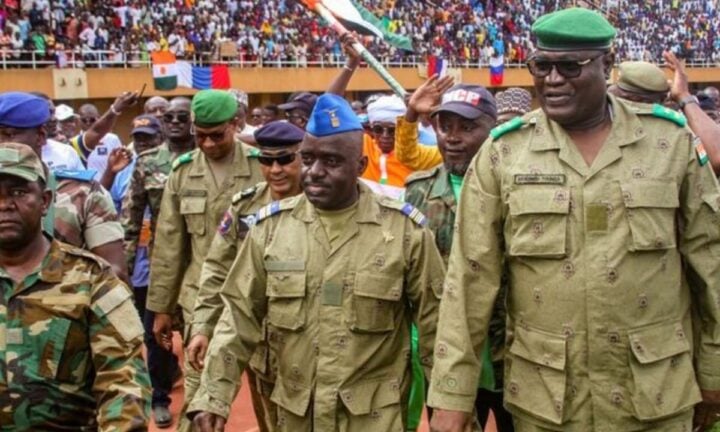
Niger Republic military leaders
A few hours before the collapse of the deadline, thousands of supporters of the military junta in Niger gathered at a stadium to show support for the regime. Many of the supporters waved Nigerien flags while some held Russian flags at the 30,000-capacity stadium named after Seyni Kountche, who led Niger’s first coup d’etat in 1974.
- TINUBU MET GOVERNORS OF STATES SHARING BORDERS WITH NIGER: As part of wider consultations by the ECOWAS chairperson on the political instability in Niger, Tinubu met with governors of states that share boundaries with Niger. The states represented at the presidential villa were Sokoto, Kebbi, Yobe, Katsina, and Jigawa. The Northern Senators Forum (NSF) had also asked Tinubu to exhaust all diplomatic means in resolving the crisis in the West African country, warning that deploying Nigerian troops to the Niger Republic will hurt seven northern states — Sokoto, Kebbi, Katsina, Zamfara, Jigawa, Yobe and Borno — sharing borders with the country.
AUGUST 7: ITALY ASKED ECOWAS TO EXTEND DEADLINE
Also lending its voice to the situation, Italy urged ECOWAS not to take military action as an intervention route. Antonio Tajani, Italian foreign minister, said the only way forward is through diplomacy.
“The only way is the diplomatic one. I hope that the ultimatum of the ECOWAS, which expired last night at midnight, will be extended today,” Tajani said.
- NIGER MILITARY FORMED NEW GOVERNMENT: Announcing the country’s new administration, the Niger military junta appointed Ali Mahaman Lamine Zeine, former minister of economy and finance, as the country’s new prime minister. Days later, Mahamane Roufai Laouali, who was cited as ‘secretary general of the government’ read out the names of 21 ministers without detailing further plans. Among the cabinet are three of the coup leaders who were named ministers of defence, interior and sports. The government, which is about half the size of the previous one, will be headed by Lamine Zeine.
AUGUST 8: NIGER MILITARY ABORTED NEGOTIATION TALKS WITH UN, ECOWAS
The Niger Republic junta rejected a tripartite peace mission from ECOWAS, AU, and UN. The delegation was the latest diplomatic mission from African countries aimed at restoring constitutional order after the July 26 coup. ECOWAS said the diplomatic overtures were aborted following a late-night communication from the military authorities in Niger indicating their unavailability to receive the delegation.
Victoria Nuland, United States acting deputy secretary of state, had also been denied permission to meet with Tiani or with Bazoum. Instead, she spoke for two hours with other army officers.
AUGUST 9: BAZOUM DENIED ACCESS TO FOOD, MEDICINE
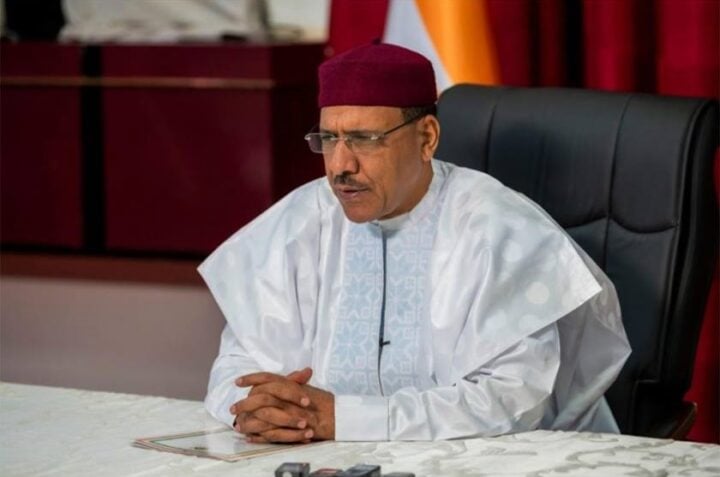
Bazoum
In a series of text messages to a friend obtained by CNN, Bazoum said he has been “deprived of all human contact” with no one supplying him food or medicine.
The ousted president said all the perishable food he was supplied with has since gone bad and he is now forced to eat dry pasta and rice. According to the texts, Bazoum added that he has also been living without electricity for a week – the result of an ECOWAS sanction.
AUGUST 10: ECOWAS ORDERED DEPLOYMENT OF MILITARY STANDBY FORCE IN NIGER — AFTER SECOND MEETING
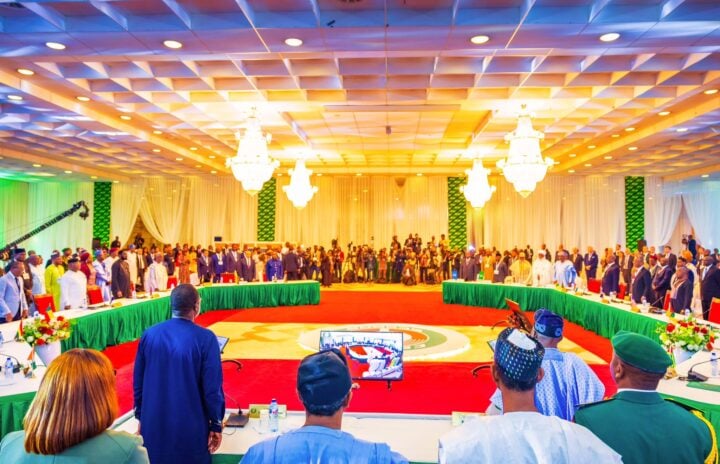
On Thursday, at the end of its second extraordinary meeting held in Abuja to address the political crisis in Niger, ECOWAS directed the deployment of standby military troops to restore constitutional order in the landlocked West African country.
The resolve to deploy force came four days after the military junta in Niger defied the ECOWAS deadline to reinstate Bazoum as the democratically elected president.
AUGUST 13: NIGER COUP LEADERS SAID THEY WERE OPEN TO DIALOGUE — AFTER MEETING WITH NIGERIAN MUSLIM CLERICS
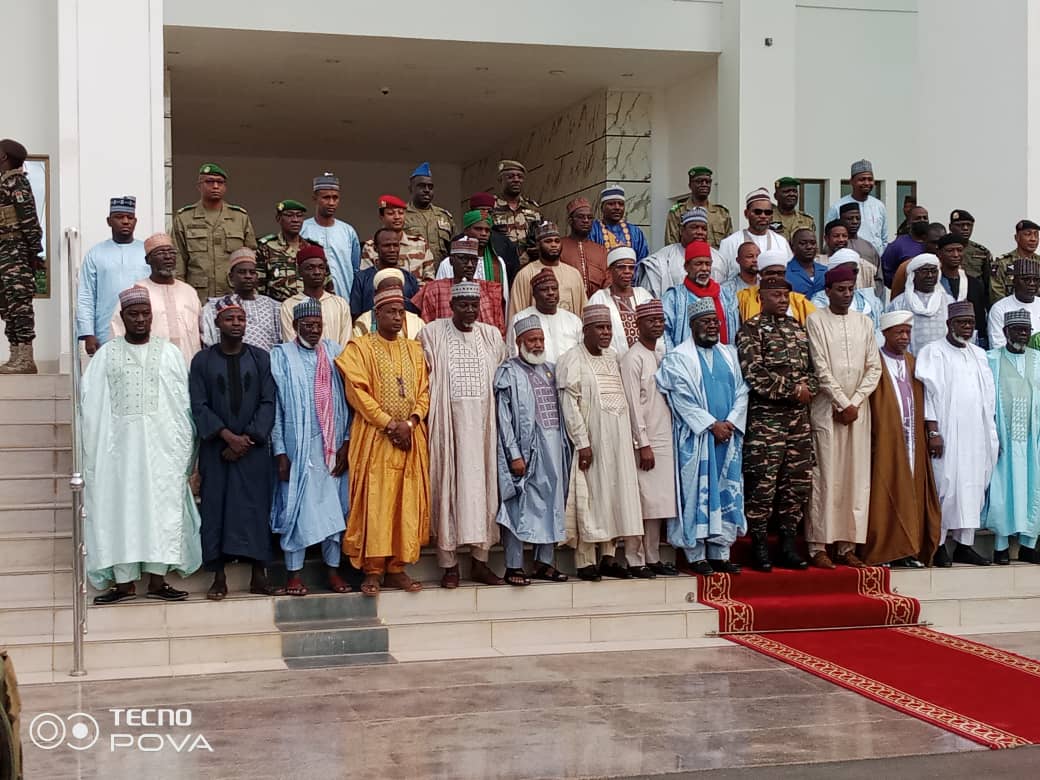
Niger Republic military leaders meet Nigeria’s Muslim clerics
Speaking during a meeting with Nigerian Islamic scholars, Tiani said the military government is ready to explore diplomatic dialogue.
The Islamic scholars were led by Bala Lau, national chairman of Jam’atul Izalatu Bida Waikamatu Sunnah, and met with Tchiani for several hours in Niger’s capital, Niamey.
Muhammadu Sanusi II, the 14th Emir of Kano, had also embarked on a personal peace keeping mission to Niger where he assured that efforts to restore peace were underway.
AUGUST 14: BAZOUM TO FACE PROSECUTION FOR ‘HIGH TREASON’
In a swift turn of events, the Niger military junta said Bazoum would face prosecution for a number of reasons.
The junta spokesperson said Bazoum was granted access to his doctors the previous day and was in a fine state.
The military again assured that Bazoum’s well-being would be treated with respect in exchange for an absence of foreign intervention.




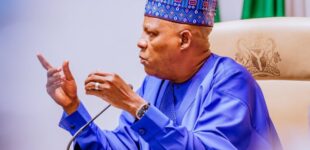


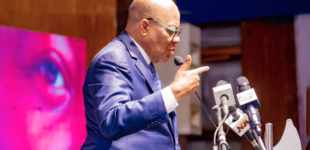

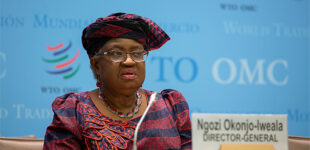



There are no comments at the moment, do you want to add one?
Write a comment